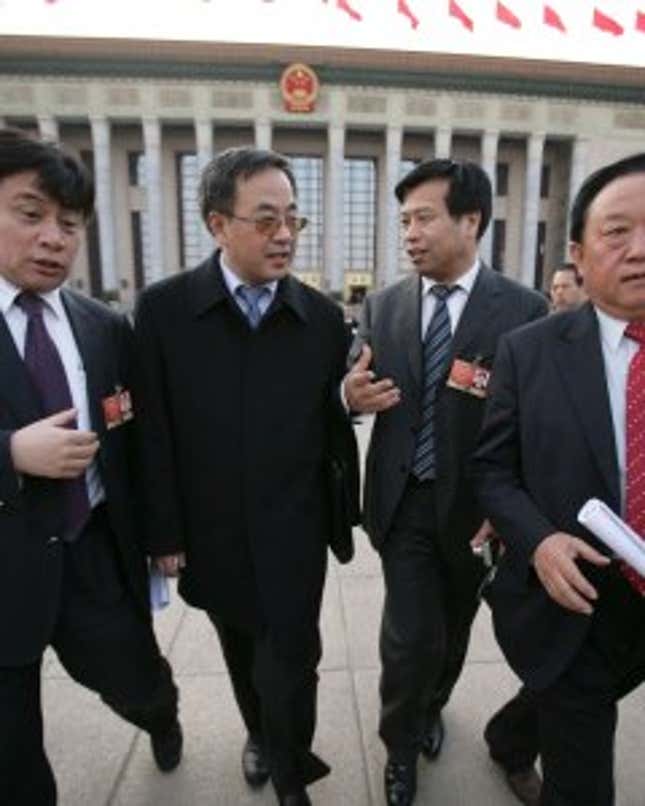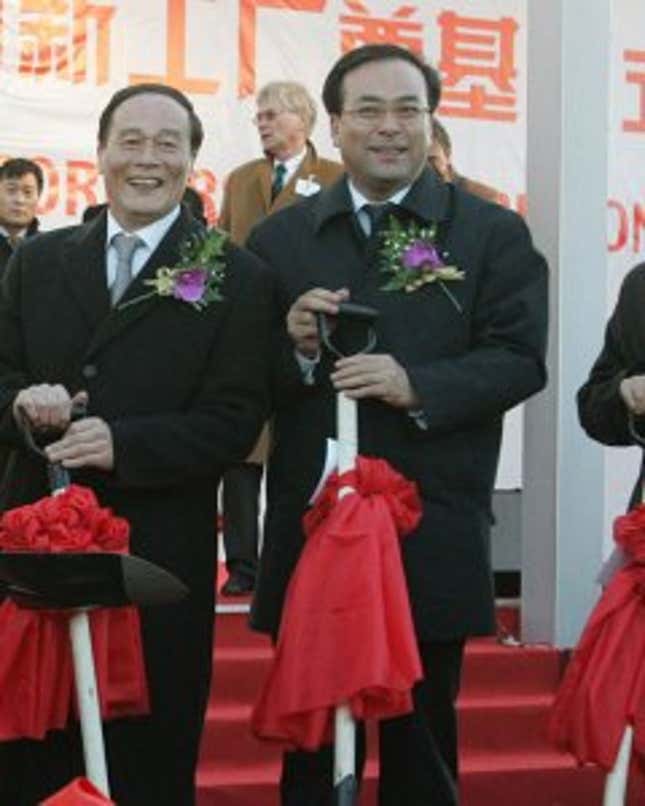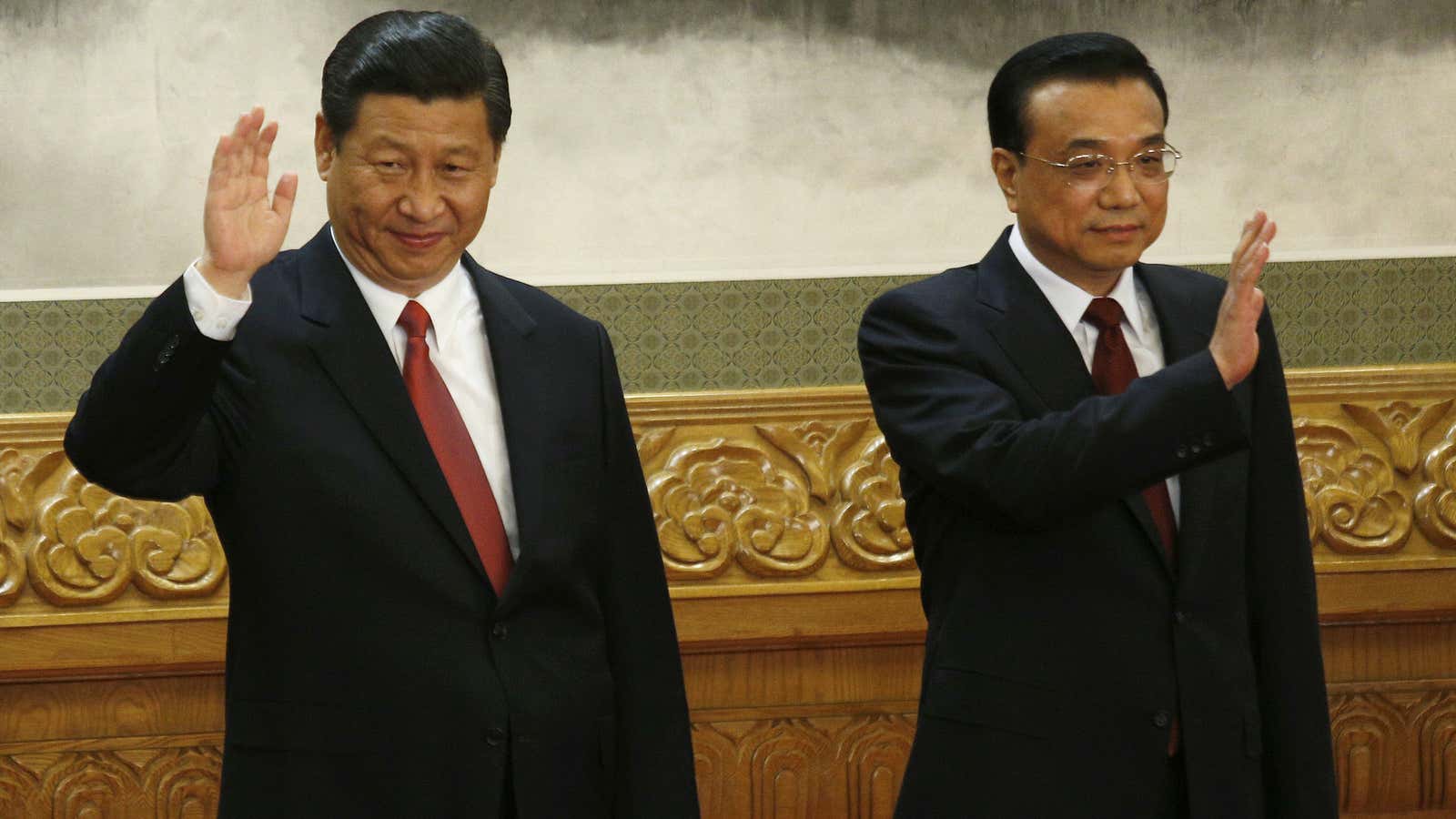China’s leadership team of 2022 may already be shaking out. Officials Hu Chunhua and Sun Zhengcai have now been promoted to posts that carry symbolic and political importance in the Chongqing municipality and Guangdong province. These posts could serve as stepping stones to the country’s no. 1 and no. 2 positions during the once-a-decade leadership change expected 10 years from now.
Who are these men and how might they alter the exercise of Chinese power? Here’s a look at Hu and Sun:

Hu Chunhua, 49, recently promoted to party secretary of Guangdong, is expected by some to succeed Xi Jinping as head of state and China’s Communist Party (CCP). The most prominent of his cohort, Hu is commonly referred to as “little Hu” because of how similar his resume is to that of outgoing president and general secretary Hu Jintao, his mentor. Like the elder Hu, he also came up through China’s Communist Youth League (CYL) and spent two decades in Tibet where he met the president and eventually came under his wing.
Hu has started to build a reputation for relative openness and a back-to-basics style. The son of a peasant family in Hubei, he is one of the few CCP officials who doesn’t dye his hair jet black but lets it gray.
His past is mostly uncheckered. One blemish: Hu was governor of Hebei province in 2008 during the time of the Sanlu milk formula scandal in which six infants died and thousands of others were made sick from melamine, a chemical used for making plastics. He’s believed to favor simultaneously soft and hard approaches to governing. As party chief of Inner Mongolia, he cracked down on protests over a Mongol herder’s death at the hands of a coal truck driver, but also held meetings with students, closed mines and punished the driver. Referencing this approach, he once said, “When we deal with mass incidents, there is no question we will take compulsory measures….We will be tough when we need to be tough, and we will be soft when we need to be soft.”
Heading Guangdong could help propel Hu further, given its symbolism as a testing ground for political and economic liberalization. It is China’s most liberal province in terms of media, has a history of civil protest, and is home to economic policy experimentation. Hu is expected to prioritize issues such as social justice and economic equality. Given his connection with Hu Jintao, the younger Hu’s succeeding Xi would fit one hypothesis for how the opaque organ of the CCP chooses the country’s new heads. That system is described as gedai zhiding, 隔代制定, meaning that leaders choose their successor’s successor. Hu is part of what’s known as the tuanpai, or populist faction, allied with Hu.

Sun Zhengcai, 49, the baby-faced former party secretary of Jilin and the youngest of China’s newly appointed Politburo has been made party secretary of Chongqing, the location of the worst corruption scandal to hit China in decades. The post was vacated earlier this year when party high-flyer Bo Xilai resigned amid allegations that he was involved in covering up the murder of a British businessman. Party secretary is the most powerful post in Chongqing, which is one of four municipalities in China that are governed directly by the central leadership in Beijing because of their national importance. Sun is a possible future premier.
There has been some speculation that Sun is a protégé of outgoing premier Wen Jiabao and therefore an ally of Hu Jintao’s populist faction, rather than the “princelings,” Chinese with elite revolutionary heritage and allied with ex-president Jiang Zemin. Sun hails from a family of farmers in Shandong province, but has no obvious factional ties.
If they were no. 1 and no. 2, Hu and Sun might prove more open to economic and political reforms. Born in the 1960s, Hu and Sun spent their formative years during China’s period of “opening up and reform” initiated by Deng in the 1980s. Unlike their predecessors, their education was not disrupted by the Cultural Revolution from 1966 to 1976, when Chinese were sent to the countryside to relearn their Communist roots.




